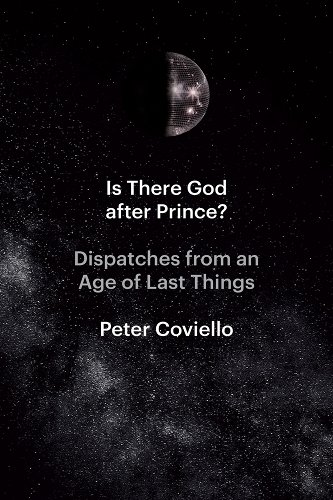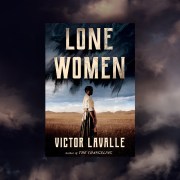[ad_1]
The Head and the Heart are an indie rock band who are not one of the subjects of Peter Coviello in his recent collection of essays, Is There God after Prince? Dispatches from an Age of Last Things. The assemblage reads more like a set of collected works than an essay collection with a unifying theme beyond topics that interest him, although interest is too mild a word to convey his passion. Coviello is a professor of English at the University of Illinois–Chicago and has previously focused his academic work on American studies and queer studies. Is There God after Prince? primarily focuses on the music and books about which he is so passionate—the heart—but sometimes his dense phrasing—the head—gets in the way. Here, for example, is an examination of another author’s essay favoring adultery:
Still, there’s always seemed to me something off about the argument, even beyond the desire to recode what is basically the signature avocation of bourgeois indolence as some kind of insurrectionary training ground, a vanguard praxis of the furtive and the concupiscent. Adultery, after all, is hardly the only scene where dreaminess and desire enjoy a reckless flourishing, or where you might encounter wanting in its further-flung conjugations.
There has to be a way to say this more simply. It is a small complaint, but I am lodging it. However, in the conflict between the “vanguard praxis” and the “dreaminess and desire,” the dreaminess and desire prevail. These essays often offer up a dense thicket of academic phrasing, but the author’s ardor for his topics keeps us reading. Coviello commands the delightful ability to beguile a reader through a thorough critique of a work you have never read—or, more likely, heard, since music shaped him early on: “I know, with a seasick certainty, that who and what you spend your youth falling in love with is, in its way, indelible.”
He discovers, and in some cases creates, obscure connections between works that excite him. I admit to having a soft spot for a reader who has a soft spot for the near-forgotten John O’Hara novella “Imagine Kissing Pete.” In the essay “Loving John,” Coviello connects this novella to John Darnielle of the indie rock group the Mountain Goats and to his own friend John, who provides steady companionship through Coviello’s enthusiasms and the push and pull of employment in academia. Men (it is rarely women) this devoted to disappearing into the wonderland of popular culture always reveal more about themselves than they do about the band or book they’re championing. Their insistence that theirs is the only true interpretation carries the fervor of a prophet and provides a thin wedge into the autobiographical.
But Coviello is aware of this. “Like many of those whose working lives involve explaining things to young people, I traffic perhaps more than I should in superlatives,” begins the stellar self-reflective essay “Mercy Hours.” “Live with these habits of untethered vehemence long enough and you have find that, whatever the quasi-charlatanism entailed in them, certain of those claims will not surrender themselves—but, to the contrary, will appear somehow to have ripened over time into fact . . .” This essay explores his need to convey to a friend his triumph in having found the “finest, most tender and demolishing literary scene of straight male friendship,” in one of the Patrick Melrose novels by Edward St. Aubyn. When the friend fails to respond promptly, and then does so tepidly, Coviello resorts to “jokey, semi-needy texts” to maintain the connection.
This is an example of both head and heart: he falls in love, hard, and urges those he loves to love this song or this passage as much as he does. This is spelled out in the third section of the book, called “Kids,” which arrives in the middle of the book and goes a long way toward teaching the reader to love the tenderness of this writing as much as Coviello loves that of others. The kids in question are his stepdaughters from a failed first marriage. He met them when they were children, and taught them to dance to the Jackson Five. His relationship with their mother dissolved, but not the one he established with them. He still calls them “my stepdaughters.” They are connected to him. To prove it, he makes them playlists. It’s how he loves.

NONFICTION
Is There God after Prince? Dispatches from an Age of Last Things
By Peter Coviello
University of Chicago Press
Published October 6, 2023

[ad_2]
Source link

